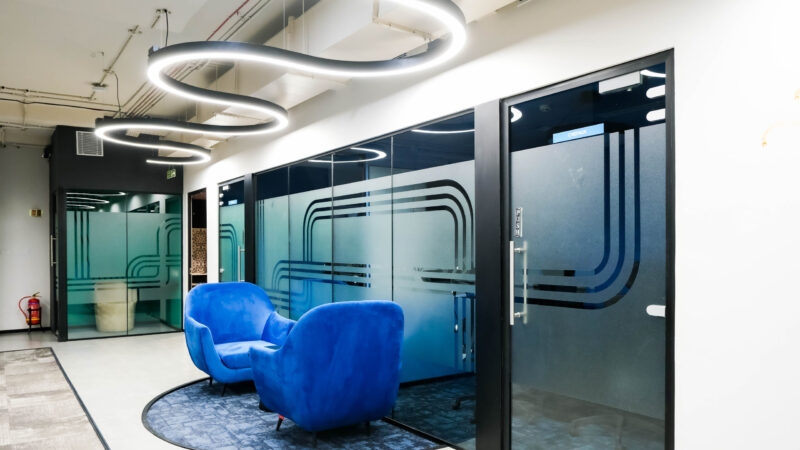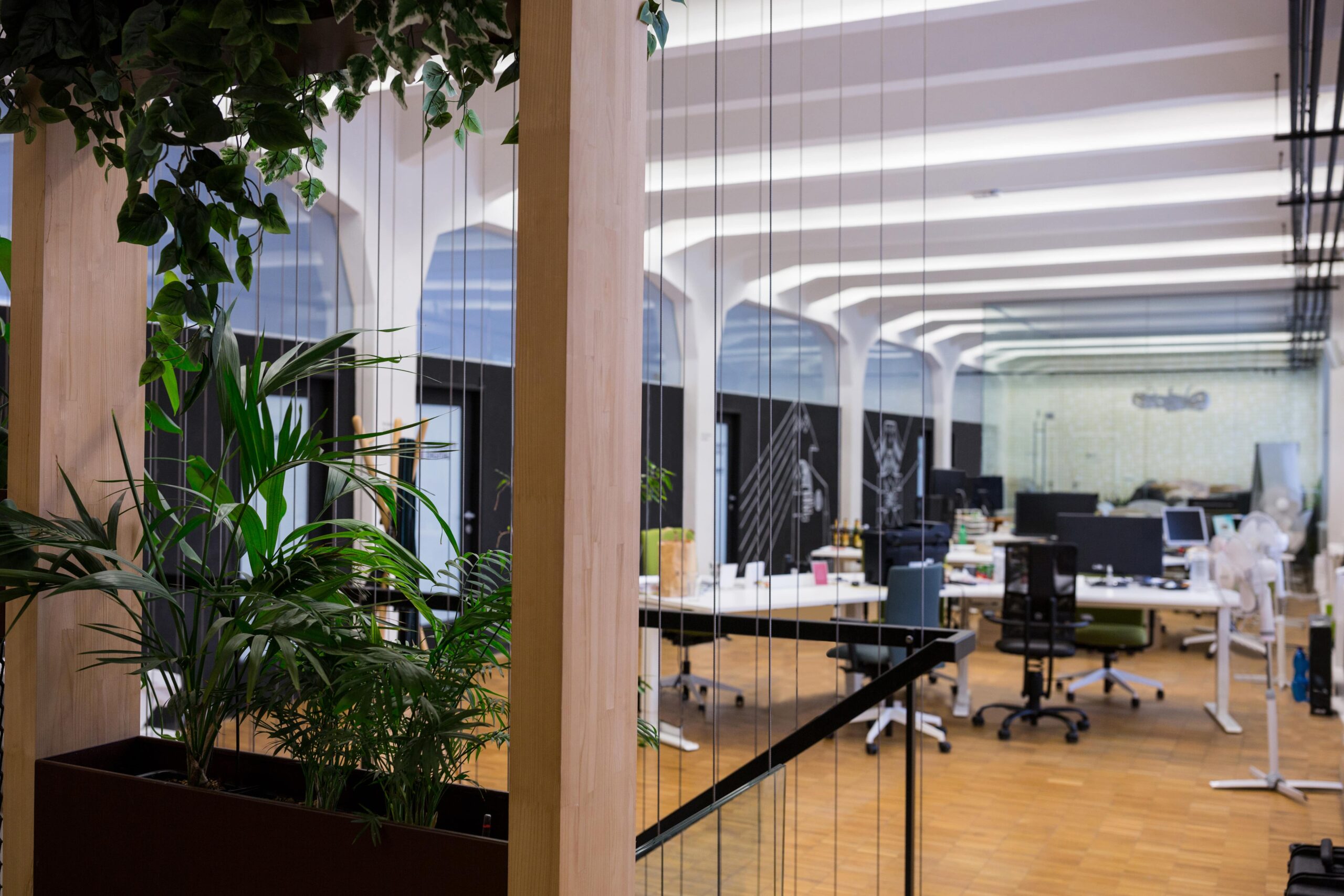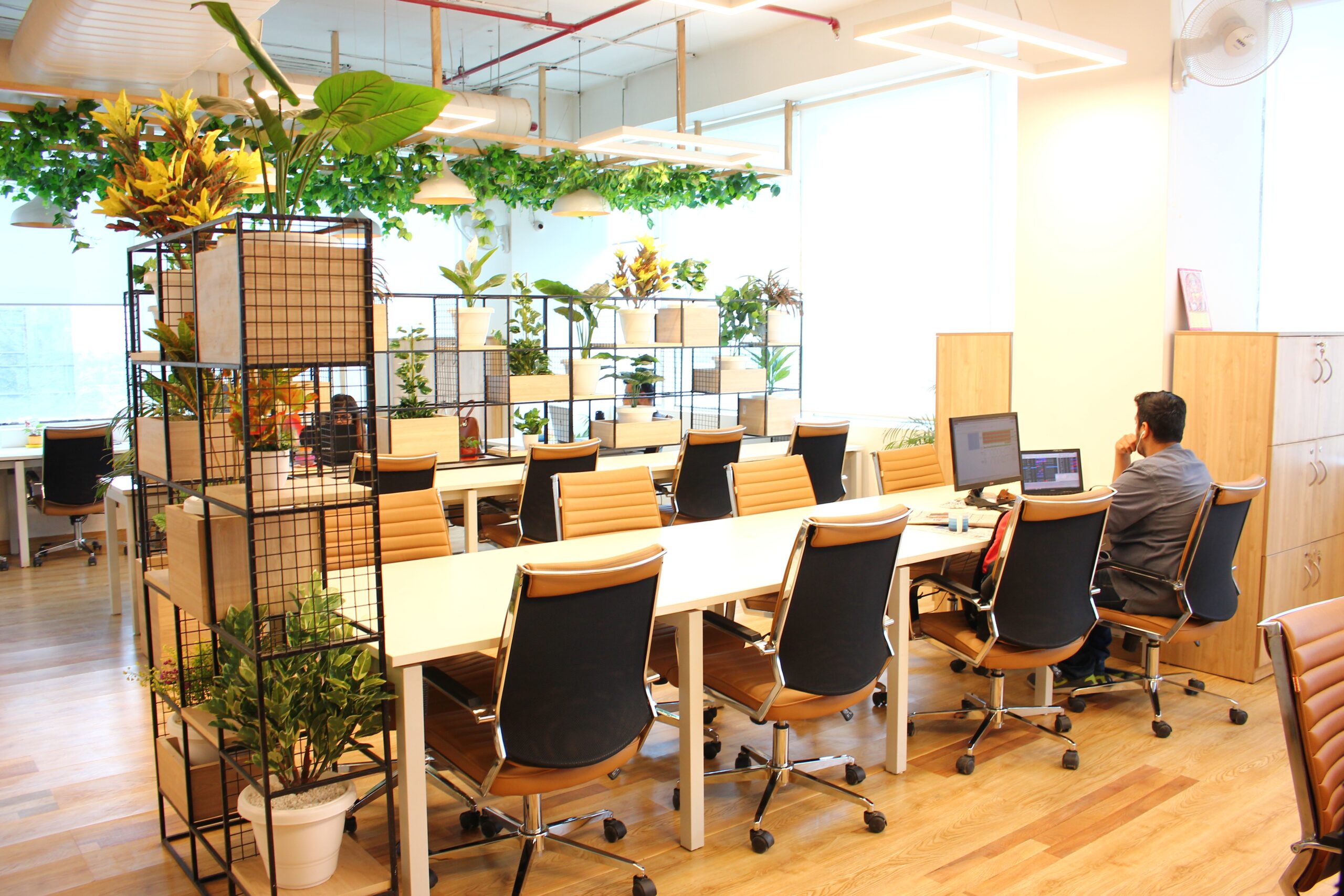The current changing times have made the concept of mindful workspaces preferred by more and more people. Mindful workspaces tend to provide an environment of comfort wherein people can have a perfect work life balance and improve their mental health at the workplace. Coworking spaces, in specific, have risen as a solution towards a productive work environment, not only changing the conventional work environment but moreover creating an environment conducive to mental well-being.
Through this blog, we aim to cover how coworking spaces lead to work-life balance, contribute to improving mental health at workplace, and develop a sense of community.
The Rise of Coworking Spaces
Traditional office spaces lack the benefits that coworking spaces provide for employees. More and more companies are preferring a flexible work environment and hence choose alternatives to traditional offices. Enter coworking spaces – shared workspaces that give freelancers, business visionaries, and remote workers a dynamic and collaborative setting to work and thrive.
If we think about it, there are two factors that have an impact on the rise in demand for coworking spaces: The growth of technology and its advancements, and the increased need for work-life harmony. These businesses’ provision of the freedom of remote work along with the common office setting has a positive effect on staff members’ mental health.

How Coworking Leads to Work Life Balance
Coworking spaces with their modern aesthetics and conducive environments, offer a unique opportunity for professionals to create a clear demarcation between their work and personal lives. By having a designated workspace outside their homes, individuals can maintain a healthier separation between professional and personal responsibilities. Moreover, coworking spaces often provide flexible hours, allowing professionals to choose when they work, thereby promoting a more balanced daily schedule. Additionally, the dynamic community of freelancers, founders, and professionals in coworking spaces fosters networking opportunities and a sense of belonging, reducing the isolation that can sometimes come with remote work. This social aspect contributes to a more holistic approach to work, emphasizing the importance of maintaining a fulfilling personal life alongside a productive professional one.
Mindfulness and Mental Wellbeing
- Sometime recently diving into the ways coworking spaces upgrade mental well-being, it is basic to get the concept of mindfulness. Mindfulness is the home of being completely displayed and mindful of one’s contemplations, sentiments, and environment without judgment. Things have appeared that consolidating mindfulness into everyday schedules can help in stress management at workplace, uneasiness, and sadness, whereas making strides center and in general well-being.
- Coworking spaces, with their differing and energetic communities, can encourage mindfulness in a few ways. People are motivated to stay concentrated and involved in their tasks by the energizing air and the freedom to organize their work schedule, which helps them develop a better relationship with their jobs.
 Making People Feel Like They Belong
Making People Feel Like They Belong
- If we talk about what the biggest advantage of a coworking space is, it would be the environment that it creates for everyone, where there is a sense of belonging and work is done comfortably and in coordination with one another. Unlike traditional office spaces, where there is a high sense of competition, coworking spaces tend to offer a collaborative community for work, where there is coworking flexibility. The sense of belonging is an important aspect for positive mental health because it reduces feelings of neglect, strengthens one’s relations with others, and helps in stress management at workplace.
- In coworking spaces, there are various individuals who come together from different industries and sectors, which paves a way for them to connect and network, leading to the formation of social and professional connections. Through coworking spaces, a productive workspace is creative where people interact and connect on a professional and social level making them feel valued, respected and recognized.
Adaptability and Diminished Push
- The adaptability inborn in coworking spaces can altogether contribute to decreasing push levels. Conventional workplaces frequently implement unbending plans, taking off representatives with small control over their work-life adjustments. On the other hand, coworking spaces give people the freedom to choose when and how they work and that gives them enough time to cater to their plans outside of their work environment.
- This independence empowers laborers to oversee their stretch levels, as they can take breaks when required, lock in in mindfulness homes, or indeed take an interest in wellness exercises advertised inside the coworking space. Moreover, the nonattendance of long commutes to a central office can diminish stretch and give more time for self-care.
Creative Spaces to Increase Imagination
- Since imagination and mental health are closely linked, coworking spaces aim to encourage imaginative thought. These zones usually have clearly defined extensions that combine open collaborative areas, private meeting spaces, and relaxation areas. People are given more freedom to explore contemporary ideas and use their imagination thanks to the elegant offer and variety of workspace options.
- A community is fostered by the diversity of professionals found in coworking spaces, which also showed people the different points of view and abilities. A collaborative culture encourages coworking flexibility, resulting in reasoning and uniqueness in one’s work, increasing overall job satisfaction and mental health at workplace.
Prioritizing work life balance
- The location of coworking spaces makes it easy to encourage work life harmony, which is essential for mental health. By providing flexible hours and services like entertainment areas, coworking spaces enable people to constantly find a balance between their personal and professional lives.
- People are able to focus on their duties with greater efficiency because of the lack of workplace legal difficulties and the freedom to create individualized work schedules. Increased employee engagement, which heightens emotions of happiness and contentment at work, is a result of this higher production. Additionally, it provides the opportunity to be a part of social events and different mental well-being initiatives that are organized.

Joining Mindfulness in Coworking Spaces
- To optimize mental well-being benefits, numerous coworking spaces have coordinated mindfulness into their offerings. These may incorporate guided reflection sessions, yoga classes, wellness workshops, or mindfulness-based push-lessening programs.
- By giving these activities, coworking spaces cater to the all-encompassing well-being of their members and fortify the significance of mental wellbeing. Additionally, a few coworking spaces have grasped nature-inspired plans, consolidating components like indoor plants, characteristic lighting, and calming color plans.
The Need For Work Life Balance
Mindful workspaces are an important aspect in today’s work environment as they encourage coworking collaboration. Such initiatives are a crucial step towards improving mental health and general well-being in any office. In the current times, job requirements seem to be more determined than ever, because of which it has become important to prioritize mental wellness and promote an environment that is positive and improves productivity alongside.
Coworking spaces have become an increasingly common alternative to traditional workplaces since they not only offer a flexible and cost-effective solution, but also have a basic understanding of mindfulness. When workspaces embrace the idea of mindfulness into the work environment it tends to foster creativity and harmony among the people thus reshaping how we perceive and approach work.



 Making People Feel Like They Belong
Making People Feel Like They Belong